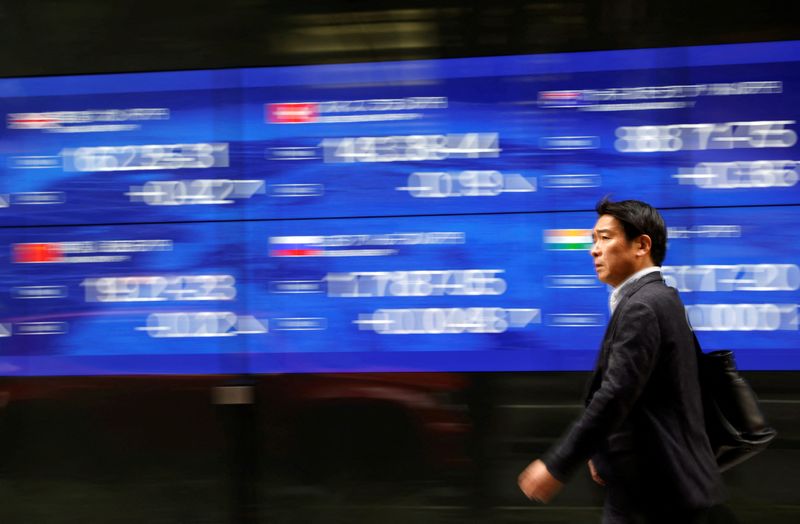
Euro slides, pressured by French political uncertainty
By Amanda Cooper and Kevin Buckland
LONDON/TOKYO (Reuters) -The euro fell on Monday as mounting political uncertainty in France kept European markets under pressure, while tech stocks lifted global shares and the dollar strengthened in a key week for the outlook for U.S. interest rates.
The U.S. currency got an additional boost from U.S. President-elect Donald Trump at the weekend, who warned BRICS emerging nations against trying to replace the greenback with any other currency. [EMRG/FRX]
“There’ll be two drivers of market volatility this month. The first remains the impact of Trump, especially future fiscal settings and, increasingly, looming trade wars,” said Kyle Rodda, senior financial markets analyst at Capital.com.
“The second is what the U.S. Federal Reserve does with policy this month,” Rodda said. “If the Fed delivers (a cut) and provides sufficiently dovish guidance, it may green light some sort of ‘Santa Rally’.”
The euro was struggling and French stocks looked set to slide later due to the risk of an imminent collapse of the French government, with Prime Minister Michel Barnier confronted with a Monday deadline to make more budget concessions or face a no-confidence vote.
France’s far-right National Rally (RN) party will likely back a no-confidence motion against the government unless there is a “last minute miracle”, RN president Jordan Bardella said on Monday.
The euro fell as much as 0.57% to $1.05155 earlier, having traded at one-week highs on Friday. French stock index futures fell 1.4%, pointing to a sharp drop at the start of trade for the CAC 40 index.
If the Barnier government falls, broader downward pressure on the euro would quickly re-assert itself, including against the Swiss Franc, said Paul Mackel, global head of FX research at HSBC.
The Federal Reserve is in sharp focus right now, with Friday’s monthly payrolls report set to inform policymakers’ thinking about whether to cut rates again on Dec. 18.
A number of Fed officials are due to speak this week, including Fed Chair Jerome Powell on Wednesday. Traders put the odds of a quarter-point reduction at about 66%.
That has left the dollar index, which measures the currency against six major rivals, 0.24% higher at 106.28.
In Asia, Chinese shares got an additional boost from a robust reading in a private manufacturing survey on Monday.
Hong Kong’s Hang Seng inched up 0.16%, while mainland Chinese blue chips rose 0.6%.
In a holiday-shortened session on Friday, the S&P 500 and Nasdaq added 0.6% and 0.8% respectively to close at all-time highs.
The yen, meanwhile, weakened 0.4% to 150.31, but remained near Friday’s six-week high of 149.47.
In cryptocurrencies, ether hit a near six-month high of $3,762.20 and was last up 2% at $3,674.44. Bitcoin was last at $96,434, hovering close to the record high from Nov. 22 at $99,830.
Gold sank 1% to $2,627.71 under pressure from the strong dollar, after sliding over 3% in November, its worst monthly performance since September, 2023. [GOL/]
Oil prices rose after Chinese manufacturing data, and as Israel resumed attacks on Lebanon despite a ceasefire agreement. [O/R]
Brent crude futures were up 0.8% at $72.41 a barrel, while U.S. crude was up 0.87% at $68.59.

